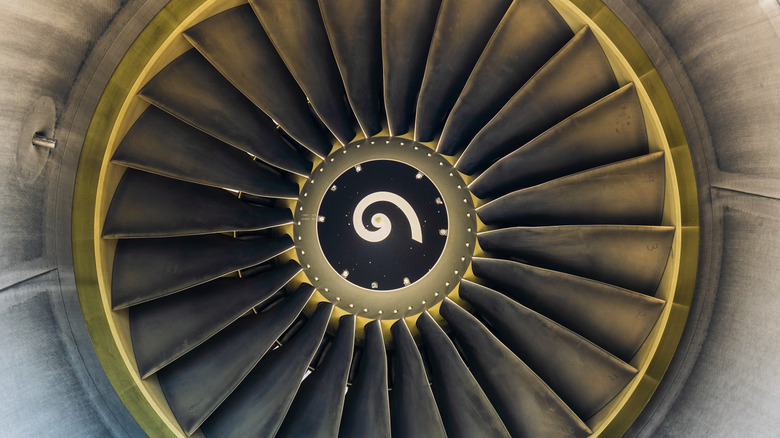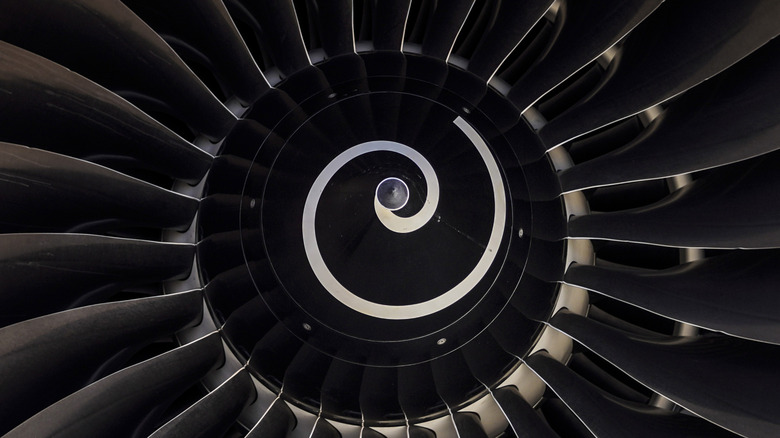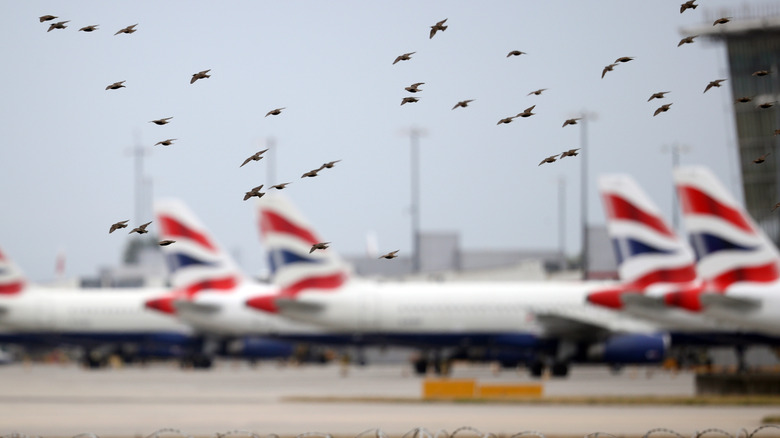The Reason Why Jet Engines Have Spirals
If you've ever looked closely at a jet engine fan on a commercial airplane, you'll have likely noticed spirals or swirls painted on the intake turbofans. There are a few different styles of these spirals, but they are almost always a white design placed specifically on the hub of the blades. It's a striking design and may leave you wondering what its purpose is. Are the swirls just for show, or is there something more to them?
These spirals are, in fact, for more than just for looks. The most important purpose of them is to alert ground workers when a jet engine is running, so they can keep clear and avoid getting sucked into the intake turbofans. Another often-cited reason is to deter birds from flying into the engine fan, which can have dire consequences, but there is no official proof that the painted swirls help prevent this or not.
Jet engine spirals are for safety
Jet engine spirals are meant for the safety of ground workers. When the blades on jet engines spin, they're whipping at high speeds, normally between 2,200 and 4,500 rotations per minute (RPM). Given how the persistence of vision works and creates an optical illusion with objects like fans, it can be difficult to tell if a fan is still running.
Ground workers generally can't use sound to determine whether an engine is running, either. While the noise of the jet engine powering up is obvious from within the cabin, workers on the ground typically wear hearing protection, which will suppress noise, including an engine beginning to spin up.
With it being hard to see the fan blades spinning and difficult to hear the engine starting, jet engine spirals are a lifesaver. When the jet engine is running, these static swirls turn into a white blur. The difference between the visible swirl when the turbofans are off and the blurry white lines when it's on is obvious and eye-catching, indicating workers should keep away from the aircraft.
Are jet engine spirals supposed to scare birds off?
Some experts claim that jet engine spirals also scare off birds so they don't fly into the fans and cause damage. However, despite these expert claims, there is little evidence to back this up.
Currently, one study looks at the correlation between a painted intake fan and whether it deters birds from getting near the aircraft. The study had a Japanese airline paint eyes on some of their aircraft, and saw a decrease of birds flying into the intake engines. However, this study did not involve the swirls on the jets we see today, and there is little in the way of conclusive evidence as to whether these swirls deter birds.
Birds and other wildlife hitting an airplane can have devastating consequences, including damage and engine failure. If jet engine spirals even have a small chance of keeping wildlife away from the turbofans In addition to keeping ground crew safe, they're well worth using.


